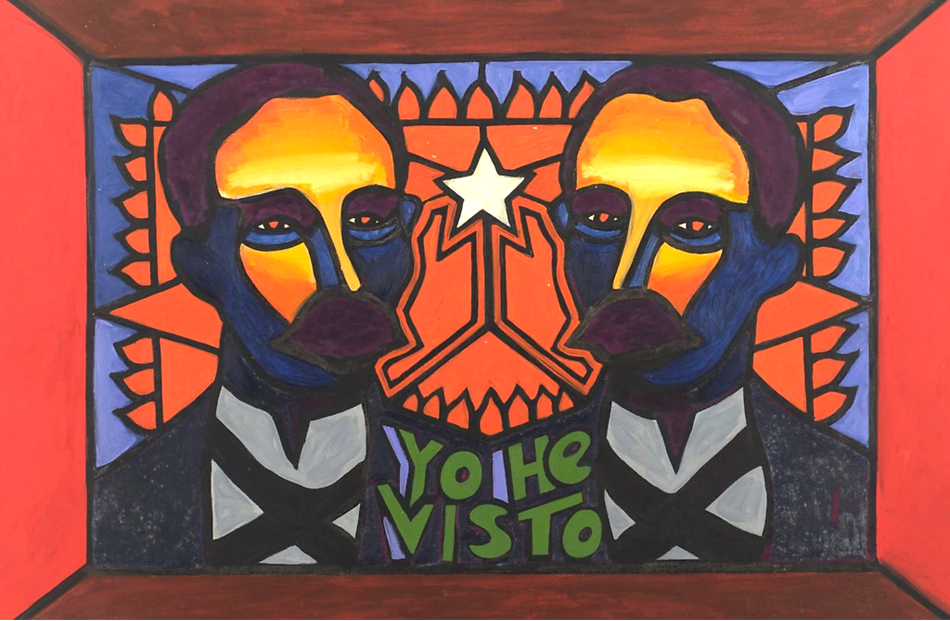Interesting article on Cuba, their vaccines, and global capitalism.
In 1869, at the age of 15, José Martí and his young friends published a magazine in Cuba called La Patria Libre (The Free Homeland), which adopted a strong position against Spanish imperialism. The first and only issue of the magazine carried Martí’s poem, “Abdala.” The poem is about a young man, Abdala, who goes off to fight against all odds to free his native land, which Martí calls Nubia. “Neither laurels nor crowns are needed for those who breathe courage,” Martí wrote. “Let us run to the fight … to war, valiant ones.” And in the rousing address by Abdala, comes these lyrical words:
Let the warlike valour of our souls
Serve you, my homeland, as a shield.
Martí was arrested and sentenced to six years of hard labor. Eventually, the Spanish imperial government sent the young Cuban into exile in 1871. He spent this time — much of it in New York — writing patriotic poems, producing political essays and commentary, and organizing the resistance to Spanish imperialism. He returned home in 1895, only to be killed shortly afterwards in a skirmish, his legacy cemented in the war against the Spanish in 1898 and in the Cuban Revolution that began in 1959.
The lines from Martí about the “warlike valour” serving as the country’s “shield” form the basis for the name of the new Cuban vaccine, Abdala. This vaccine, the fifth to be produced in Cuba, was developed by the Centre for Genetic Engineering and Biotechnology (CIGB) in Havana.
In announcing the results of their trials, BioCubaFarma, the country’s leading biotechnology and pharmaceutical institution, noted that it had an efficacy rate of 92.28 percent, almost as high as the efficacy rate of the vaccines by Pfizer (95 percent) and Moderna (94.1 percent). The vaccine is administered in three doses, each given with a two-week gap.
The Cuban authorities plan to vaccinate three quarters of the population by September. Already, more than 2.23 million vaccines have been administered to the 11 million Cubans on the island, 1.346 million people have been vaccinated with at least one dose, 770,390 with the second dose, and 148,738 with the third dose.
[...]
One of the casualties of the blockade has been Cuba’s inability to buy ventilators to treat critically ill patients, since the two Swiss companies (IMT Medical AG and Acutronic) who made them were purchased by a U.S. company (Vyaire Medical, Inc.) in April 2020. Cuba has now developed its own ventilator in response.
At the same time, Cuba suffers from a shortage of syringes. Syringe manufacturers are entangled in one way or another with the U.S. pharmaceutical industry. Terumo (Japan) and Nipro (Japan) have operations in the United States, while B. Braun Melsungen AG (Germany) is in a partnership with Concordance Healthcare Solutions (U.S.). An Indian syringe firm, Hindustan Syringes & Medical Devices Ltd., is linked to Envigo (U.S.), which brings U.S. government scrutiny to the Indian firm. In an act of concrete solidarity, a campaign is underway to raise funds towards the purchase of syringes for Cuba.
[...]
In February 2021, in one of our newsletters, Tricontinental: Institute of Social Research noted that we lived in a time of “three apartheids.” These apartheids include that of food, money and medicine.
At the heart of the medical apartheid is vaccine nationalism, vaccine hoarding, and, as Ghebreyesus put it, vaccine apartheid. Matters are quite grave. The COVAX vaccine alliance has seen vaccines move out of its reach both because of bilateral deals being made between the richer countries and the vaccine makers and because of the lack of financial support from the richer states to the poorer ones. The trends show that many countries will not see significant enough numbers of their population vaccinated before 2023, “if it happens at all,” says the Economist Intelligence Unit.
[...]


It's a great article. Go read the original here.